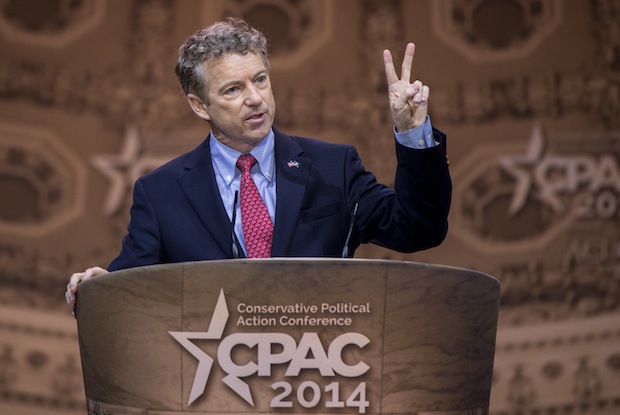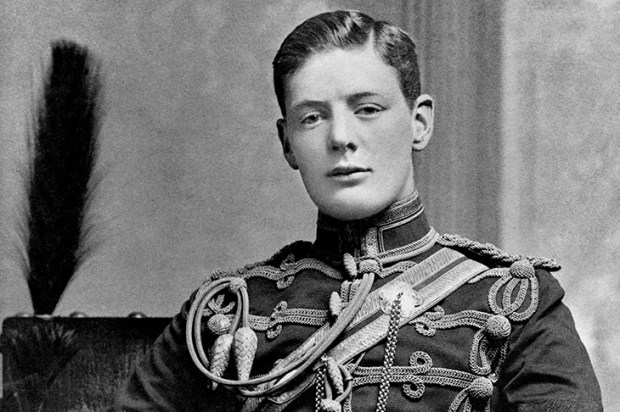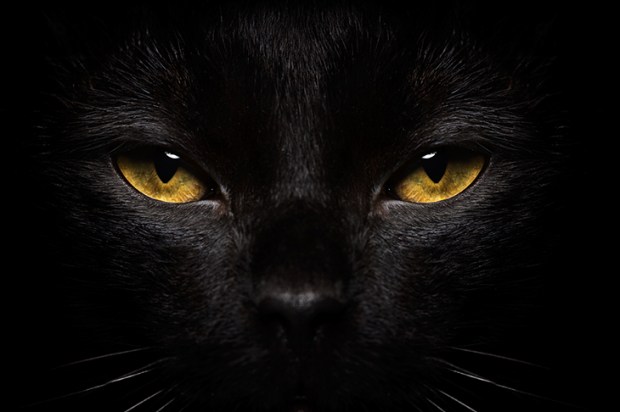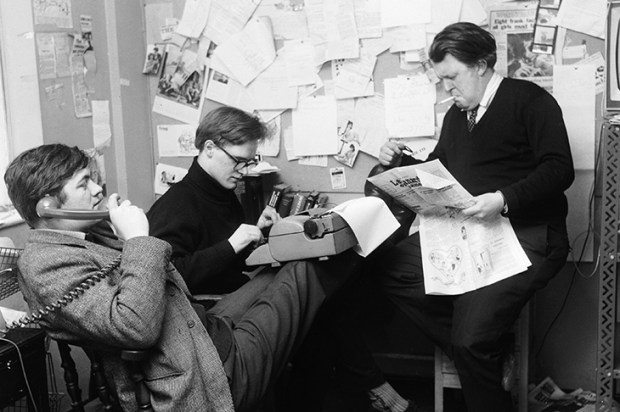Listen
About the coolest guy I saw at CPac this year was this wild-eyed, middle–aged crazy wearing ‘statement’ spectacles, faded Levis and a badge on his immaculately cut, grey wool Timothy Everest suit-coat saying ‘2012 WTF?’ I was looking in the bathroom mirror at the time and the drugs were just starting to kick in. Not proper Hunter S. Thompson drugs, unfortunately. Just some imported Indian-made version of the anti-narcolepsy drug Modafinil, kind of a low-level, legal amphetamine, which I’d taken to ward off the effects of the truly Babylonian party at Breitbart’s Capitol Hill ‘Embassy’ HQ the night before…
Anyway, the point I’m trying to make here is not how cool I am, but how desperately, fantastically, magisterially uncool CPac is. CPac is the annual convention for American conservatives, held in a big conference hotel called the Gaylord in the Maryland riverside resort of National Harbor, about half an hour’s cab ride out of Washington DC. This is where you go to watch the future of conservatism. Well, I’ve seen it — and it isn’t working.
And it gives me no pleasure to say that, by the way. After two terms of Obama, the US is going to need a restorative shot of red-blooded conservatism at least as badly as Britain did (and failed to get) after the years of Blair and Brown. What I can’t see at the moment, though, is where it is going to get it.
Nor could anyone at CPac. The only keynote speaker who totally raised the roof was Sarah Palin, at the end. But that may be because, unlike the other headlining acts (Marco Rubio, Ted Cruz, Rand Paul, etc), she has the advantage of not currently being a politician angling for the presidency. She has decided there’s more fun and money in being a stand-up comic, lefty-baiting uber-troll and Tea Party kingmaker, all of which she does brilliantly. God, though, I don’t half wish she would stand. She has that thing which Reagan had but which no GOP presidential candidate has really had since: the ability to bypass the left-liberal media and connect directly with people, explaining what conservatism is really about — more liberty, less government mismanagement and interference — in a way which doesn’t sound doctrinaire or off-putting.
According to the kids at CPac — more than half the attendees are under 25 — the candidate of choice is Rand Paul. To get your free, red ‘I stand for Rand’ T-shirt at his exhibition-hall stall, you had to fill out a questionnaire stating where you stood on various libertarian issues (drugs, size of government, NSA surveillance etc). I got 190 Rand points out of a possible 200, so we’re definitely in the same camp ideologically. But though his speech — whose somewhat laboured homage to Pink Floyd’s (clunky, fifth-form political album) The Wall didn’t work nearly as well as Sarah Palin’s homage to Dr Seuss’s Green Eggs And Ham — went down a storm with the libertarian PaulBots in the audience, I have my doubts as to whether its chewy earnestness will play quite so well in the wider America beyond.
On the plus side, Rand Paul’s politics definitely reflect where young America is headed. For example, he’s pro-legalisation of marijuana (as were 63 per cent of the CPac voters), as I suspect — in the wake of the successful Colorado experiment — almost every state in the union will be by the end of the decade. And like his dad Ron, he’s against America spending money it can’t afford on being the world’s policeman (52 per cent of those polled at CPac agreed it was time America’s allies provided more of their own defence).
But this puts it him very much at odds with the hawkish tendencies of the traditional conservative mainstream (as represented, on this issue, by the likes of Rubio and Cruz). Which doesn’t augur well for a US conservative movement fully united in opposition to whichever candidate (Hillary?) the Democrats throw up for the 2016 presidential election. In America, as in Britain, conservatism has rarely looked more divided: neocons v. isolationists; libertarians v. SoCons; Tea Partiers v. Rino squishes. And, just like the People’s Front of Judaea and the Judaean People’s Front, they loathe one another even more than they do their natural enemies.
That new isolationist tendency may strike outsiders as odd, given that so many Americans continue to be so proud to serve and that the US military is still accorded so much reverence. But over a drink with a young ex-Marine called Andrew, I got the hint of an answer. He told me how incredibly ‘pissed’ many of his NCOs had been over news that Fallujah, the town over which so many of their comrades had shed so much blood, was now back in enemy hands. ‘They want to go back there, right now, and take it again,’ he said.
This is the real frustration of America’s military and its many sympathisers. And according to my new best buddy A.W.R. Hawkins — who besides being Breitbart’s NRA correspondent happens to be an extraordinarily erudite military history PhD — it’s by no means a new thing. It dates all the way back to Vietnam.
‘You often hear that the lesson of Vietnam was that America’s military lost the will to fight,’ he says. ‘But that wasn’t the lesson. The lesson of Vietnam was that America’s military lost the will to fight in wars that it wasn’t allowed to win.’
Got something to add? Join the discussion and comment below.
Get 10 issues for just $10
Subscribe to The Spectator Australia today for the next 10 magazine issues, plus full online access, for just $10.
You might disagree with half of it, but you’ll enjoy reading all of it. Try your first month for free, then just $2 a week for the remainder of your first year.















Comments
Don't miss out
Join the conversation with other Spectator Australia readers. Subscribe to leave a comment.
SUBSCRIBEAlready a subscriber? Log in